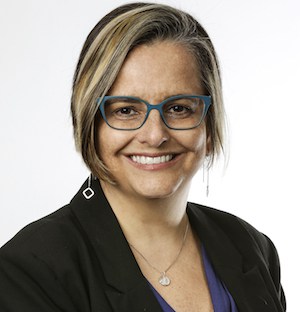As congress wrestles with replacing the Affordable Care Act (ACA), a big question is where they will land with Medicaid expansion. Rolling back Medicaid expansion would hurt our country’s safety net — taking coverage away from millions of Americans, many of whom are low-income, working adults who aren’t offered health insurance through their employers or who work intermittent, contract jobs — and would bring back an antiquated, out-of-touch thinking about poverty that classifies the poor into “deserving” versus “undeserving.”

Historically, children, the elderly and the disabled have been considered deserving of receiving assistance and, accordingly, have received healthcare coverage earlier and in higher numbers. Able-bodied adults, meanwhile, were considered undeserving. The assumption was that they either didn’t want to work or were not making enough effort to find a job. Providing assistance to them, the thought went, only encouraged their continued unemployment.
Prior to implementation of the ACA, able-bodied adults with no dependents didn’t qualify for Medicaid, even if they earned little or no income at all. In states like Texas, which didn’t expand Medicaid coverage, this is still the case. In these states, when able-bodied adults don’t obtain healthcare coverage, it is perceived as a matter of their own choice, without regard for the consequences. Republican Rep. Raul Labrador from Idaho – another state that didn’t expand Medicaid — channeled this older way of thinking recently when he said, “nobody dies because they don’t have access to healthcare.”
States that did expand Medicaid, by contrast, offer healthcare coverage to childless adults who make under $16,643 a year. This expansion covered individuals who may 1) have a health condition severe enough to make them unable to work full time but not enough to qualify them disabled; 2) be freelancing or doing contract work, in-between jobs, looking for jobs or working low-wage jobs that don’t provide the benefit of health care coverage; 3) be not working outside the home in order to care for a sick or elderly family member.
Medicaid expansion demonstrated a shift toward a way of thinking about poverty more attuned to the 21st century, when lack of full-time, stable employment is not really a personal choice. Estimates are that 34 percent of U.S. workers are freelance or contract employees. This is a big contrast to what we grew used to during the second half of the 20th century. Freelance and contract work is not always dependable or available at 40 hours per week. In addition, blue-collar and low-wage jobs, even if full time, are the least likely to offer health insurance coverage as a benefit. And even when healthcare coverage is offered, the premium costs are prohibitive to some workers.
Taking Medicaid benefits away from the newly covered groups would be a backward-looking choice. Medicaid is crucial for the safety net of our country. Higher rates of coverage benefit those who need healthcare and the communities they live in. They also translate into fiscal benefits for all of us: coverage saves money in the long run, especially for the local communities and states that shoulder most of the costs of those who can’t afford coverage — hospital bills for unexpected emergencies don’t just pay themselves. Lack of healthcare coverage for those who can’t afford it also raises health costs for everyone.
GOP senators in states that expanded Medicaid should be asking themselves how rolling back Medicaid expansion will impact their constituents. For some of them, it is a matter of life or death — individuals with chronic illnesses like diabetes or rheumatoid arthritis who can now afford their medications; the estimated 1.3 million people suffering from opioid addiction who can receive treatment. Moving forward, lawmakers must preserve the Medicaid eligibility standards in the states that expanded Medicaid. In states that didn’t expand Medicaid as part of ACA, lawmakers should move towards expanded eligibility for adults making less than $16,643 per year.
It’s time to stop making policy decisions on who is most “deserving” and do the important work of saving lives by keeping Medicaid expansion in place.
Cossy Hough is a clinical assistant professor of social work at The University of Texas at Austin. This opinion piece was produced for Texas Perspectives and represents the views of the author, not of The University of Texas at Austin or the Steve Hicks School of Social Work. A version of it was published in the Austin American-Statesman.


